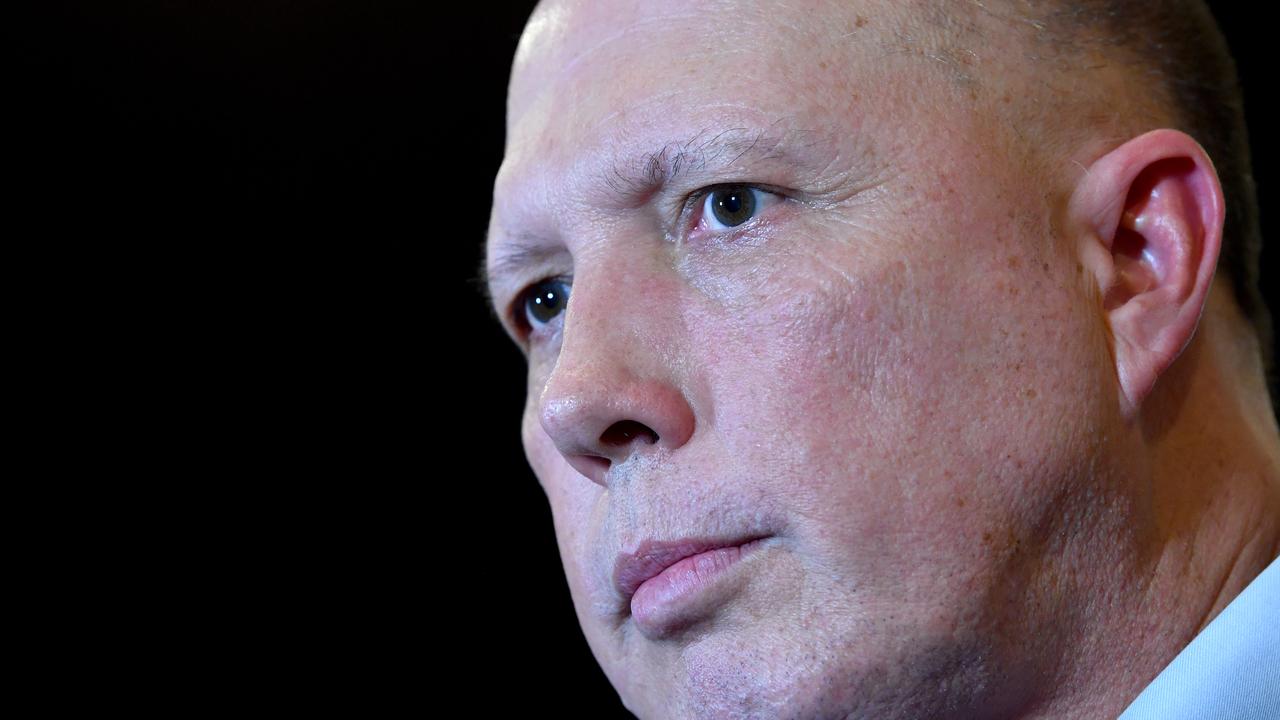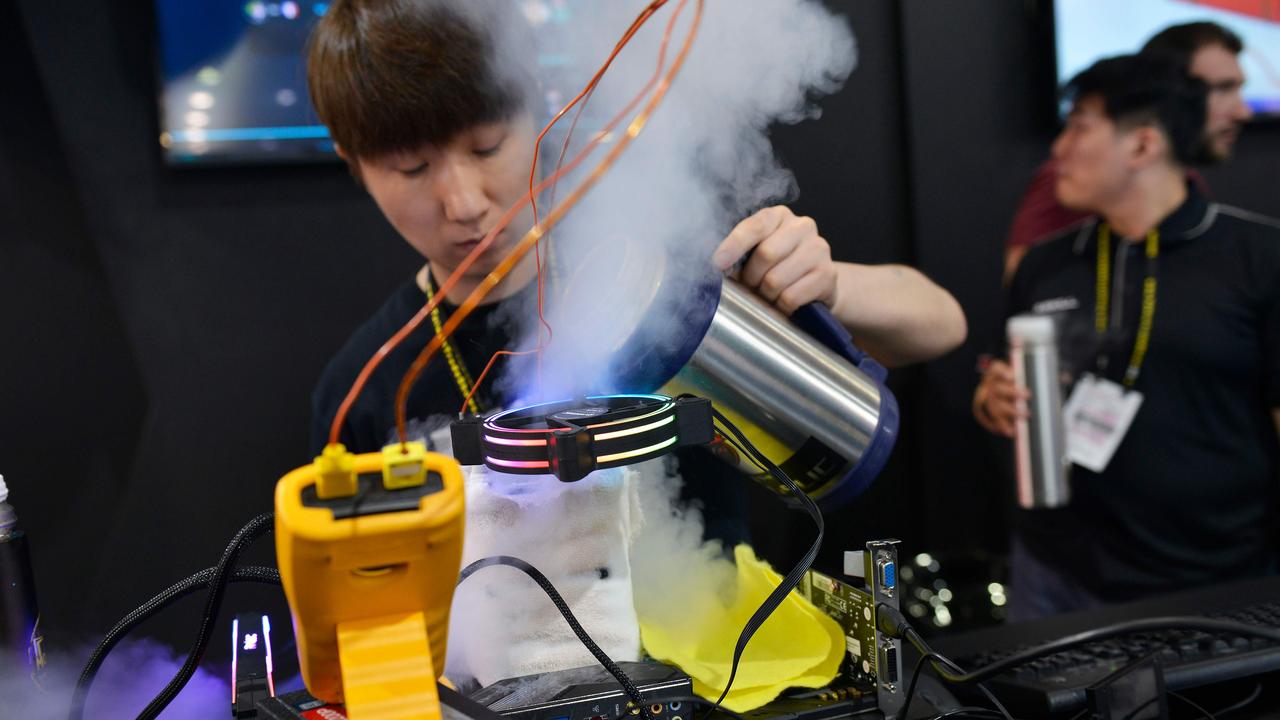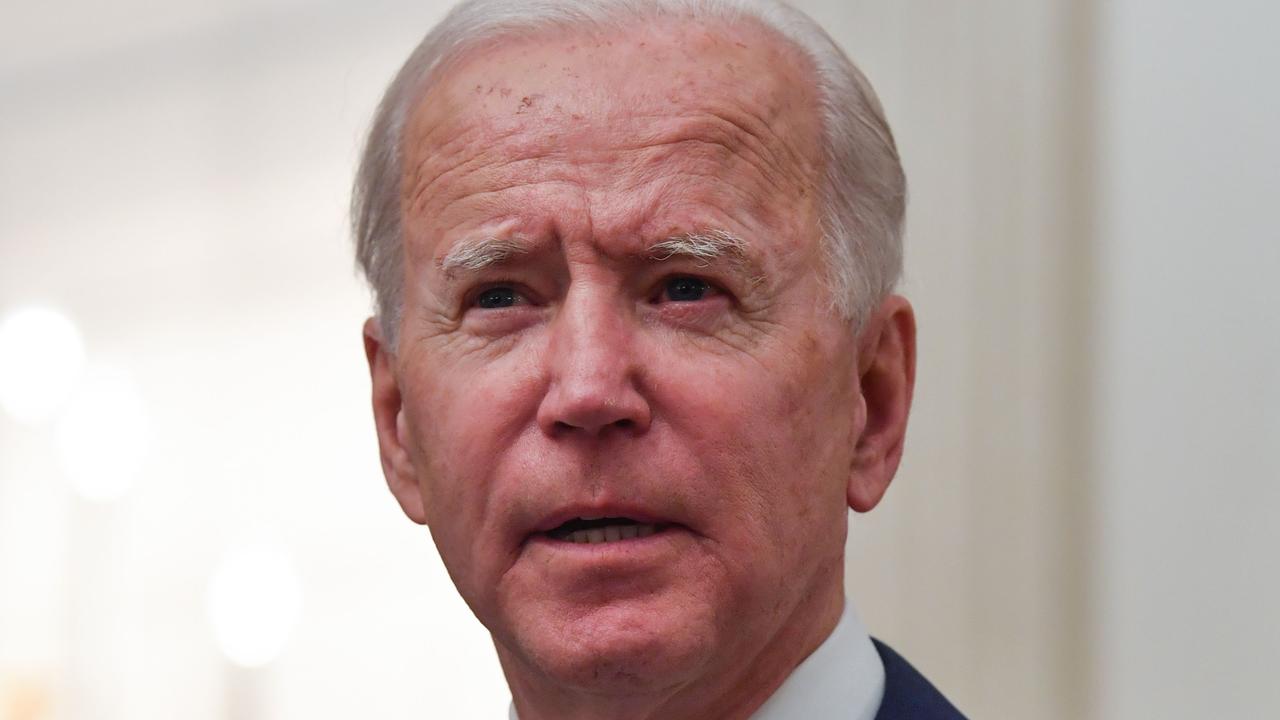Why Australia’s relationship with China hinges on battle for Taiwan
A China-Australia conflict has been described as a “high likelihood” that could happen “quite soon” – and there’s one key flashpoint at play.
Since the coronavirus pandemic began in Wuhan, China at the start of last year, relations between Beijing and Canberra have deteriorated significantly.
In the latest escalation of tensions, Beijing has ended all activities conducted under the China-Australia Strategic Economic Dialogue.
As the diplomatic and trade relationship between Beijing and Canberra continues to go from bad to worse, there are concerns at the highest levels of the Australian Defence Force (ADF) that even open conflict between Australia and China may break out.
RELATED: Warships on the move amid China tensions

In an April 2020 confidential address to ADF Special Forces units, one of the nation’s top generals Major-General Adam Findlay stated that there was a “high likelihood” that current tensions may spill over into a clash with China.
In assessing the geopolitical landscape of the Indo-Pacific, one strategically and diplomatically important nation stands out as the potential catalyst for a war between the United States and China. Taiwan.
In a recent interview with ABC’s Insiders, Defence Minister Peter Dutton echoed these sentiments. When asked whether the prospects of a “battle over Taiwan” were growing and could happen “quite soon”, Mr Dutton replied: “I don’t think it should be discounted.”
He said: “I think China has been very clear about the reunification. If you look at any of the rhetoric that’s coming out of China, particularly in recent weeks and months in response to different suggestions that have been made, they’ve been very clear about that goal.”
RELATED: ‘Serious consequences’: Australia scrambles

In an article for Bloomberg, Stanford University historian and author Niall Ferguson summed up the importance of Taiwan to the US and China in a single sentence:
“He who rules Taiwan rules the world.”
Escalating rhetoric and military moves by Beijing
Recent days have seen the Chinese air force violate Taiwan’s Air Defence Identification Zone (ADIZ) with record numbers of aircraft, with a group of 25 Chinese air force fighter jets, reconnaissance and airborne early warning aircraft crossing into Taiwan’s ADIZ in a single flight.
It is likely these flights have multiple motives for Beijing. It gives the Chinese air force the ability to assess Taiwan’s air defences, it sends a clear message to Taipei that pressure will continue to be applied and it gets Taiwanese radar operators accustomed to seeing large flights of Chinese aircraft.
Given the recent rhetoric that has come from the Chinese air force directly and state media, these incursions may continue to escalate significantly, further heightening tensions.
In a recent exchange between a Chinese air force pilot and the Taiwanese air force, prompted by the Chinese jet violating Taiwan’s ADIZ, the Chinese pilot responded with this after being asked to leave: “This is all Chinese airspace. You will soon be able to adapt.”
Taiwan – the key to the modern world
Taiwan is also of vital importance to pretty much every user of cutting edge technology in the world.
From smartphones to cars, almost every piece of modern technology we use in our everyday lives finds itself intertwined with the Taiwan Semiconductor Manufacturing Company (TSMC).
TSMC is by far the largest producer of microchips in the world, controlling 51 per cent of the entire global market. Its next largest competitor, Samsung Electronics, accounts for 18.8 per cent of the global market, with other competitors holding less than an 8 per cent market share.
It is also one of only two companies globally capable of producing the most cutting edge 5nm-based microchips, which are a key component in the latest computer processors, graphics cards and smartphones.

These factors render Taiwan a key concern for not only Washington and Beijing, but every company in the world that relies on TSMC to manufacture microchips for the products they make.
Manufacturing of the latest microchip technology is also not a simple endeavour to replicate. Even with the enormous resources the Chinese government can bring to bear, experts believe that Beijing replicating the current manufacturing capability of TSMC’s chips is at least seven to 10 years away.
The case for the US defending Taiwan

For the US losing or not even fighting for Taiwan would likely result in a disaster for Washington.
It would be seen as the end of American primacy in the region and confirm that China was once again returning to its historical role as the pre-eminent power in Asia.
In this scenario, US allies such as South Korea, Japan and Australia would probably be forced to look to themselves for their own defence, as the US would be exposed as unable to protect its interests in the region.
China would also gain control of TSMC and effectively gain a stranglehold on the most important commodity of the 21st century: Technology.
Experts have warned that the loss of Taiwan would also be devastating to the US dollar and the US Treasury bond market, which underpins the current global financial system.
Where to from here?
For Chinese President Xi Jinping, bringing Taiwan back under control of the mainland is apparently his most important objective and the reason why he removed the term limits on his presidency.
For the US ensuring Taiwan continues to enjoy the status quo is essential to maintaining American influence in the region and its place in the world.
We all hope the situation doesn’t escalate to the point of open conflict, as the tectonic plates of the geopolitical world continue to shift.
But if tensions do escalate and President Xi decides Taiwan will be reunited with the mainland by force of arms, it is a conflict that neither Beijing nor Washington can afford to lose.
If there is to be a major clash between the superpowers in the coming years, Taiwan will more than likely be the place, for he who controls Taiwan may rule the world.
Tarric Brooker is a freelance journalist and social commentator | @AvidCommentator




